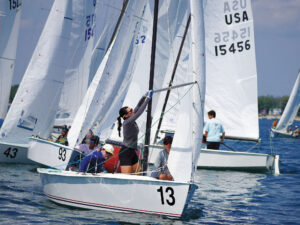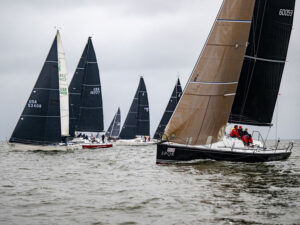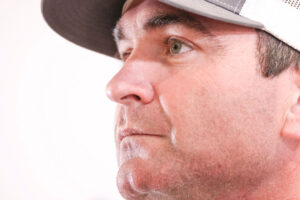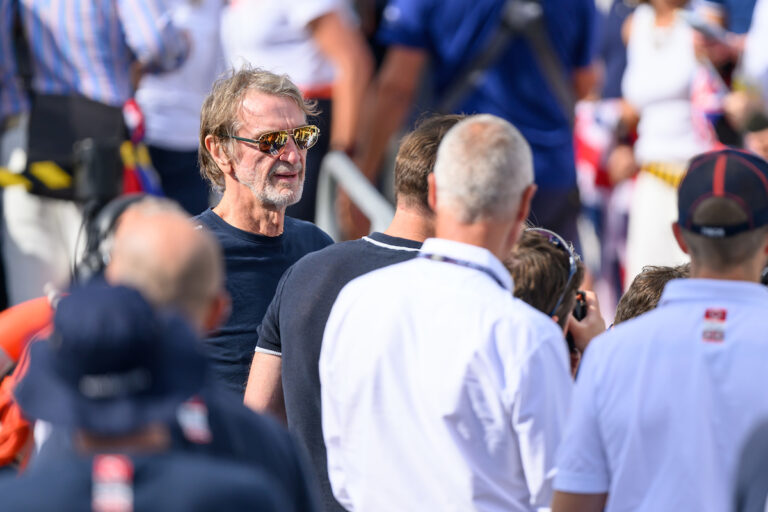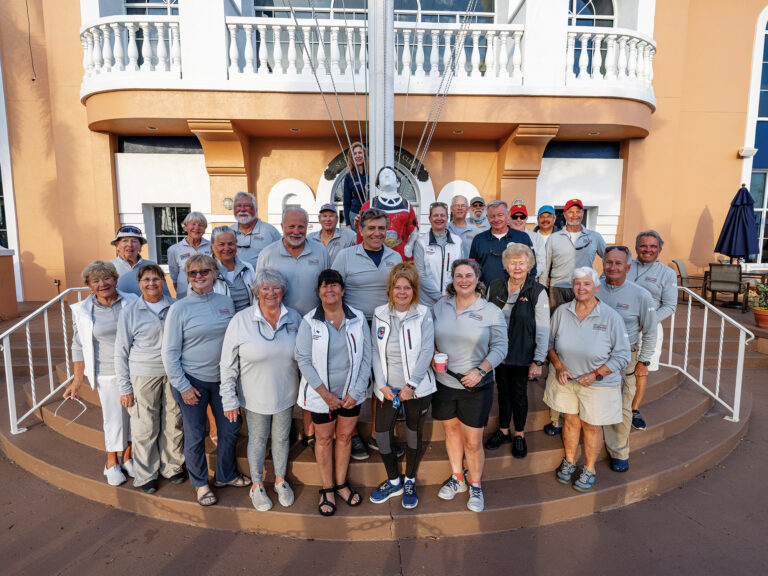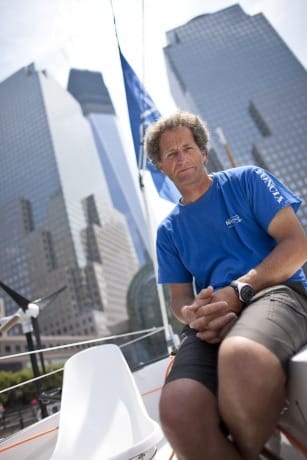
Michel Desjoyeaux
The rocky coastline of Brittany, France, is considered by many to be one of the most beautiful places in the world. But this time of year, in late fall, when it is very wet, the weather can cast a pale of dark over anyone’s soul.
Most of the activity at Port la Foret was at the nearby bistro, where the locals hunkered down on barstools, probably wondering when the rain would let up enough so they could work on their boats. Not a single vessel could be seen leaving or entering the port, and for good reason: The breeze was already blowing a steady 25 knots and was expected to reach 40 knots in a few hours.
Such a Saturday in Brittany is best spent inside, maybe curled up by the fire with a whiskey and a good book. But today was when Michel Desjoyeaux, aka “the Professor,” decided to venture out with his team on his MOD70 multihull. The idea was to see how well a new propeller would work when the boat reached speeds of 35 knots and more.
But besides testing his boat, one of Desjoyeaux’s goals these days is to attract more international interest in MOD70 racing. He is doing that by showing foreign journalists and potential competitors firsthand just what a thrill it is to sail and pilot the 70-foot multihulls, which is the main reason I was invited to come along that day.
And I was certainly not disappointed, especially when Desjoyeaux handed me the helm. Much of the sensation comes from the three hulls and the lifting effects they cause, which is much different than sailing a monohull. The sensation became even more of a thrill when Desjoyeaux piloted the 70-foot boat at up to 38 knots that day, as the boat lifted and jumped from six-foot waves.
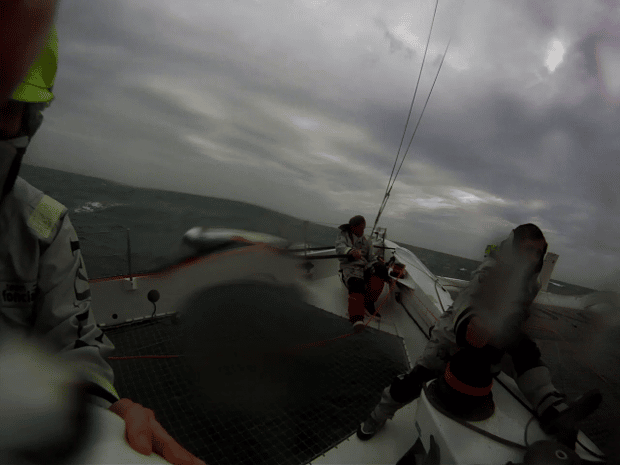
Photo: Bruce Gain
Michel Desjoyeaux helms his MOD70 to speeds of over 35 knots off the coast of Brittany, France.
Desjoyeaux, one of the MOD70’s pioneers, is convinced that the top U.S. sailing talent will want to race these boats when they become better acquainted with them. The MOD70 is also certainly in need of a more diverse international contingent to breathe more life into the class, which presently totals fewer than 10 boats.
If there is one critique to make about this multihull class since its start in 2009, it is that the MOD70 remains too French-centric; the monotype-design boats are only manufactured in France and the vast majority of skippers and teams are French as well. Desjoyeaux is also especially vocal about his hopes that a U.S. team will enter the fray.
“We are waiting for the Americans to join us,” Desjoyeaux says.
Interest in the MOD70 class is growing in the United States, aided in part by the Krys Ocean Race‘s start in New York in July, where racing fans as well as the general public could see the boats moored in the harbor. Those who followed the race from the United States were not disappointed when Spindrift, skippered by Yann Guichard, won the race after making the 2,950-mile transatlantic trek to Brest, France, in less than five days.
The America’s Cup has also done a lot to build awareness of multihull designs in the United States, Desjoyeaux says. “With the recent America’s Cup races, people in the United States have begun to realize that not only does multihull racing exist, but you can go very fast and have a lot of fun sailing on such a boat. It’s been something of a cultural shock I think for people to see what is possible on a multihull,” Desjoyeaux says. “If you look at the AC45, there are few French sailors that compete and those that do take part don’t have the financial backing they need. Yet, with the AC45, Americans are finally, after 25 years, beginning to take part in multihull races.”
The MOD70 class would certainly get more visibility in the United States if a U.S. sponsor would come on board. After Foncia discontinued its sponsorship a few months ago, Desjoyeaux said he would certainly welcome meeting with a potential U.S. partner. “If I were to get a U.S. sponsor, the move would entice other American competitors to seek sponsors there,” Desjoyeaux says.
But don’t expect a cloudburst of sudden popularity in the United States or elsewhere outside of Europe in the near future, Desjoyeaux said. “The MOD70 It is not going to explode in popularity but it is going to evolve,” he says.
After my sail with Desjoyeaux the other day, sailing gear and hair drenched as if I had stood in the shower, I asked him about his plans for the future. He ruled out taking a stab at the Jules Verne around-the-world record or seeking to win the Route du Rhum again, or even the 2016 Vendee Globe after that. Instead, the two-time Vendee Globe winner will remain faithful to MOD70 racing, and after securing a sponsor, plans to resume competing on the MOD70 circuit following his participation last year in the Krys Ocean Race and the European Tour, which his team won in 2012. But, he insists, the race has to become more international in order to evolve.
“Just tell the Americans to come and compete against us in the MOD70 class,” he says.
Read more from Bruce Gain in his blog, Postcard From Europe.

